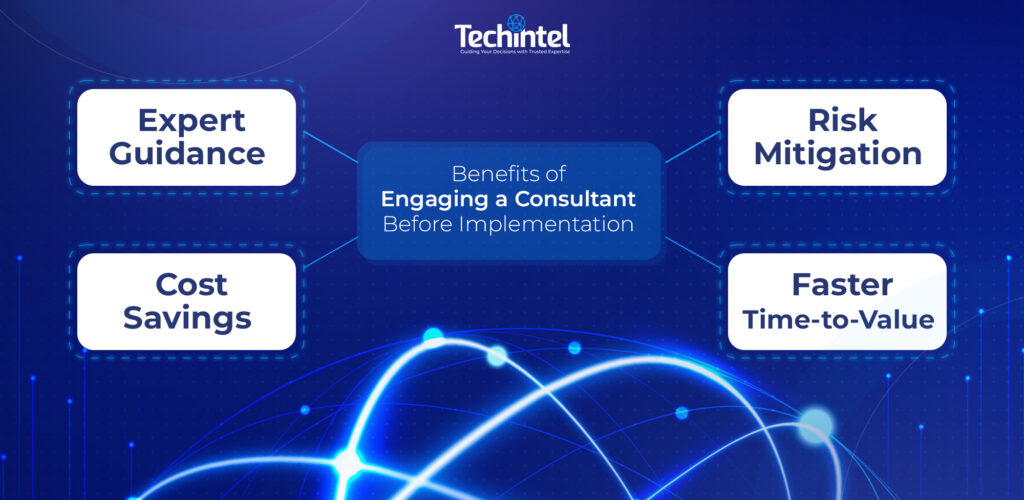Embarking on an Enterprise Resource Planning (ERP) implementation can be a game-changer for businesses, streamlining operations and boosting efficiency. However, without a solid strategy and expert guidance, the journey can be fraught with challenges. This is where the strategic advantage of consultancy comes into play, ensuring a smoother, more effective ERP deployment.
Importance of Strategic Planning Before Implementation
A clearly defined ERP strategy is not just a prerequisite but a critical success factor in any ERP project. It ensures that the ERP system aligns with the specific needs and goals of the business, maximizes the return on investment, and mitigates the risks associated with ERP implementation.
Think of an ERP strategy as the backbone of a successful implementation, transforming business processes and systems in a way that supports overall business objectives. An ERP strategy defines the rules, components, and roadmap that will govern an industry-standard ERP deployment and its eventual utilization.
To ensure that the overarching ERP strategy includes a path to achieve the company’s goals and objectives, it is essential to have the right mix of personnel included in both the planning and the execution. A comprehensive ERP Strategy Playbook should include these strategic elements united into a clear roadmap communicated to key stakeholders and maintained by the organization as things change.
The Role of Consultancy in Ensuring Successful ERP Deployment
Engaging a consultant can be the compass that guides your ERP implementation journey. An ERP consultant makes the process go a lot smoother, accelerates time to value, helps with mitigating project risks, and provides the organization with much-needed ongoing management and support. They bring a wealth of experience, helping to align the ERP system with your organization’s unique requirements and strategic goals.
Common Pitfalls Businesses Face During ERP Implementation
Without proper guidance, businesses often stumble into common pitfalls during ERP implementations. These can include:
- Failing to align the ERP system with business needs An ERP strategy is crucial for aligning solutions with specific business needs and goals.
- Underestimating the complexities of data migration Effective risk management involves identifying potential risks, such as data migration complexities.
- Poor user adoption Identifying potential roadblocks, such as resistance to change or lack of user adoption, and developing mitigation strategies to address them proactively is essential.
- Lack of a detailed project timeline Proper project planning involves creating a detailed project timeline.
The average company ends up spending 2x–4x their budget and timeline when attempting an ERP project on their own.

The Role of an ERP Consultant
An ERP consultant brings a multifaceted value to the table:
- Saving Time An experienced ERP project manager knows the best path forward and which factors can accelerate the process when done correctly.
- Saving Resources Experienced consultants understand prioritization of human resources, including when it is best to involve relevant company management and when it isn’t necessary.
- Saving Costs An experienced ERP consultant’s primary goal is to know every option, add-on, and customization available for your particular vertical and will know how to best build scalable flexibility without additional costs and penalties.
Benefits of Engaging a Consultant Before Implementation
Engaging an ERP consultant before implementation offers numerous benefits:
- Expert Guidance: Benefit from the knowledge and experience of seasoned professionals.
- Risk Mitigation: Identify and address potential risks before they become costly problems.
- Cost Savings: Avoid unnecessary expenses through informed decision-making and efficient implementation.
- Faster Time-to-Value: Achieve a quicker return on investment with a streamlined implementation process.
Summary
In conclusion, the strategic advantage of engaging a consultant before ERP implementation cannot be overstated. From aligning the system with business goals to mitigating risks and ensuring cost savings, a consultant’s expertise is invaluable. By investing in consultancy, businesses can pave the way for a successful ERP deployment, driving efficiency and achieving long-term success in today’s dynamic business environment.




